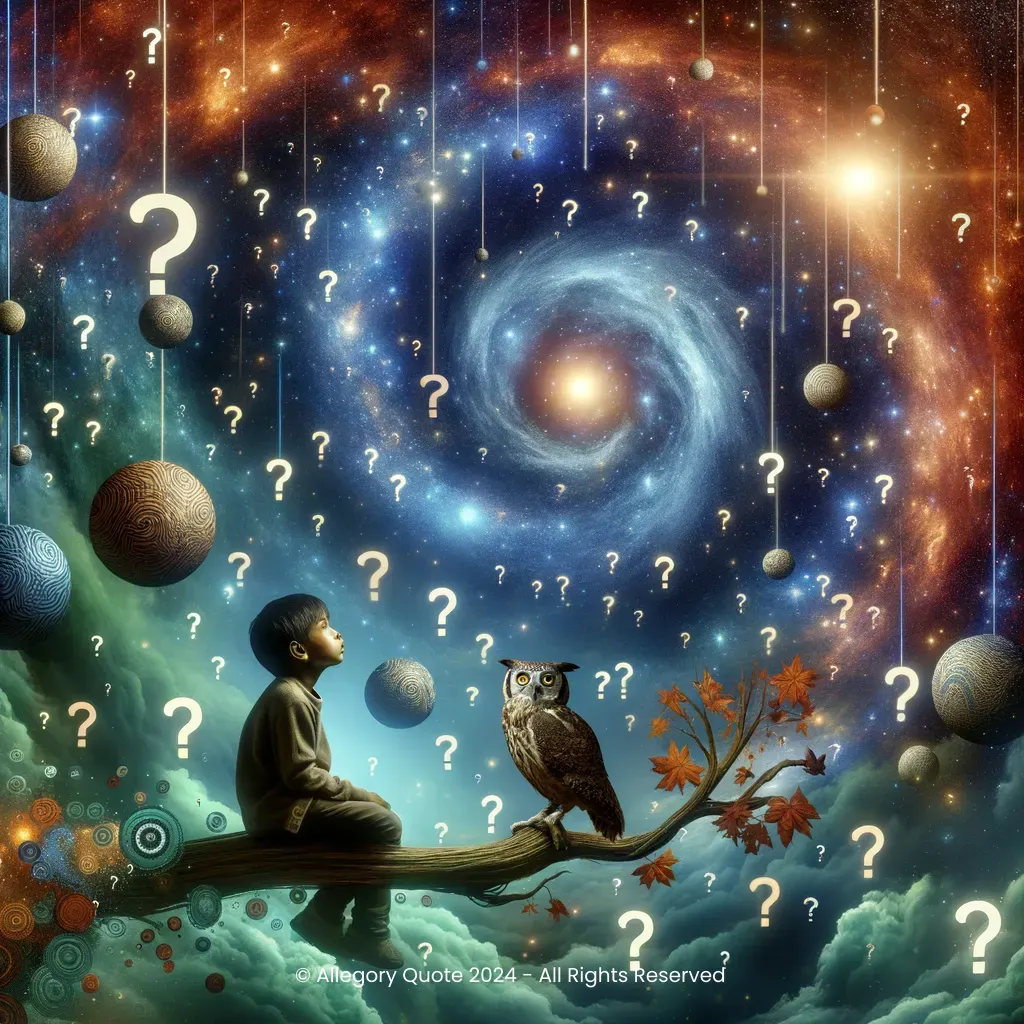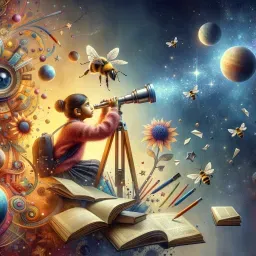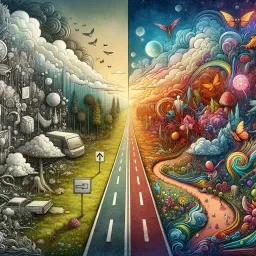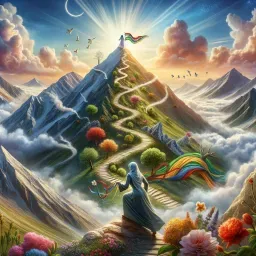”The important thing is not to stop questioning.
Curiosity has its own reason for existing“

0
0
0
0
- Meaning
- The meaning of this phrase can be interpreted as a celebration of curiosity as an essential aspect of human nature. Philosophically, it points to the idea that our quest for knowledge is an inherent part of existence, one that drives innovation and understanding. Psychologically, curiosity can be seen as a vital component of cognitive development and learning, suggesting that an inquisitive mind is key to personal and intellectual growth. Historically, this reflects the spirit of the Scientific Revolution, where questioning and skepticism led to advancements in science and philosophy, pushing the boundaries of what humanity understands about the universe.
- Allegory
- In the allegorical image, the child represents the essence of curiosity, symbolizing an open mind willing to explore the unknown. The starry sky signifies the vastness of knowledge one can attain, with question marks woven into the galaxies representing the infinite questions that propel us to seek answers. The wise owl symbolizes wisdom gained through inquiry, and the vibrant colors evoke feelings of hope, inspiration, and the excitement of learning.
- Applicability
- The lessons from this phrase can be applied personally by encouraging individuals to embrace their inquisitiveness in everyday life. One can practice asking questions, exploring new topics, and fostering a mindset that values learning over complacency, thus enhancing personal growth and problem-solving in various aspects of life.
- Impact
- This quote has significantly impacted educational frameworks and philosophies, inspiring movements that prioritize critical thinking and inquiry-based learning. It is often quoted in academic settings to promote the importance of intellectual curiosity, particularly in science and philosophy.
- Historical Context
- While it is difficult to pinpoint a specific date for this quote as it reflects Einstein's lifelong philosophy, the essence of questioning can be traced throughout history, especially in the context of the early 20th century when Einstein's theories challenged existing paradigms in physics and sparked deeper inquiries into the nature of time and space.
- Criticisms
- Critics might argue that excessive questioning can lead to confusion or indecisiveness, suggesting a balance must be struck between questioning and action. However, advocates could counter this by emphasizing that questioning is a pathway to informed decisions and deeper understanding, rather than a roadblock.
- Variations
- Variations of this concept can be found across cultures, such as the Chinese proverb, "Learning is a treasure that will follow its owner everywhere," which emphasizes the value of knowledge and learning—parallels can be drawn with the importance of questioning and curiosity in acquiring wisdom.
-

You never fail until you stop trying.
-

Try not to become a man of success, but rather try to become a man of value.
-

I have no special talent. I am only passionately curious.
-

Hey, if nothing lasts forever, then everything is just the stuff of now.
-

Logic will get you from A to B. Imagination will take you everywhere.
-

We cannot solve our problems with the same thinking we used when we created them.
-

Anyone who has never made a mistake has never tried anything new.
-

The past can hurt, but the way I see it, you can either run from it or learn from it.
-

Strive not to be a success, but rather to be of value.
-

Life is like riding a bicycle. To keep your balance, you must keep moving.
No Comments